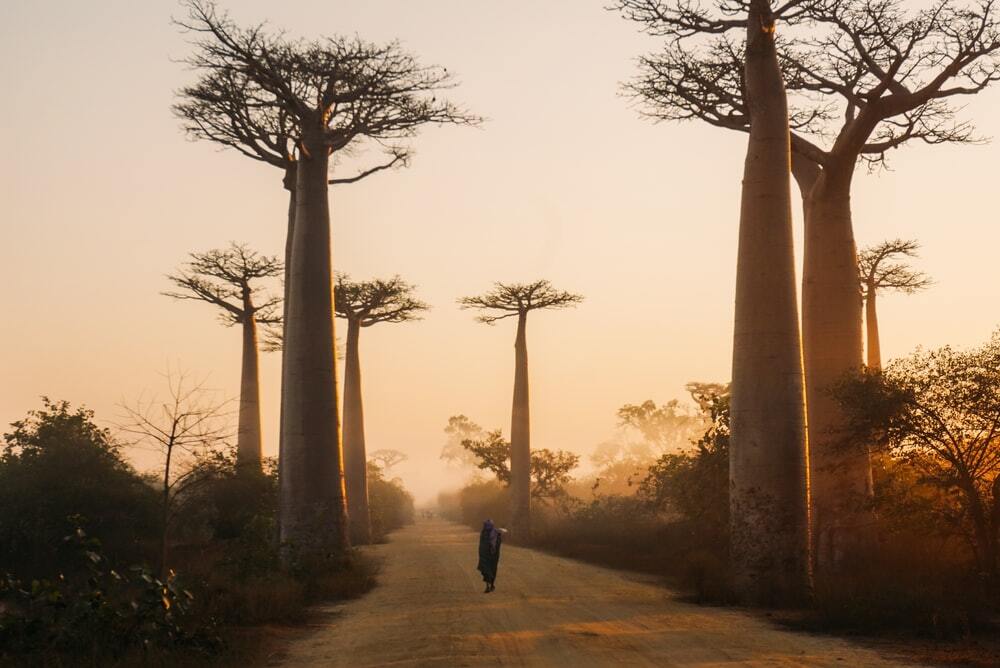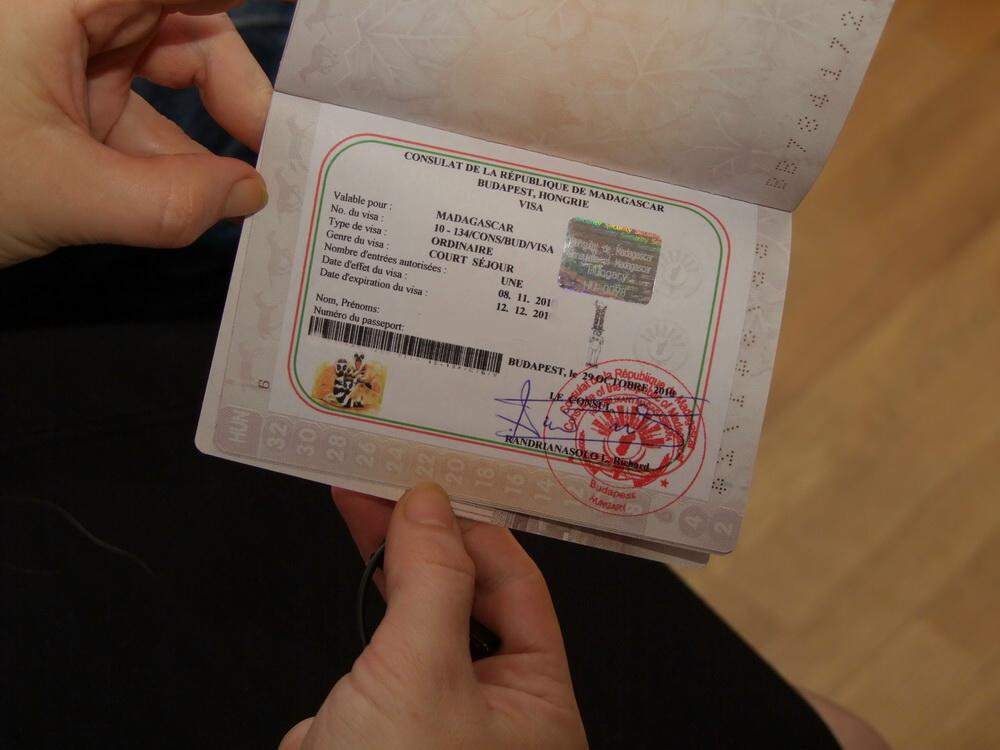
Madagascar plays home to a very unique safari experience, split from the mainland in prehistoric times, it has had the space to grow into its own ecological masterpiece. Being such a different experience to mainland Africa, and indeed, anywhere else in the world, brings many questions. We have tried to answer many of our frequently asked questions below when planning a trip to Madagascar, if you can’t find what you are looking for, get in touch and one of our experts will be happy to help you
Do I Need a Visa to Travel when planning a trip to Madagascar?

At present, tourist visas are required by all nationalities entering Madagascar. You can still get the Visa upon arrival, for a stay up to max. 60 days, all you need is valid return ticket and a passport that is valid six month beyond traveling date.
A 30 Day Visa cost 35 USD & 60 Day Visa Cost 45 USD. Do note that this has to be paid on cash upon arrival in either US Dollars, Euros or the local currency Malagasy Ariary.
The E-visa Website http://www.evisamada.gov.mg/ is now functional and soon you will be able to book a visa online. Beware of other scam sites, this is the only official site.
What Money should I take to when planning a trip to Madagascar?
The local currency in Madagascar is Malagasy Ariary (1 USD = Appx 4000 Ariary), although most major currencies are accepted. US Dollars and Euros are usually the preferred currency. Make sure your notes are relatively new as older notes can be harder to change.
There are very few cash machines/ATMs and those that are around will only dispatch Malagasy Ariary. Also it is not uncommon for the machines to be out of cash or out of order. It is best to carry cash.
Credit card will work at most high end hotels, Visa is the most widely accepted. Amex & Mastercard often won’t work.
What Languages are Spoken in Madagascar?
Your Guides and staff in the hotels and lodges will all speak in English. Malagasy is the first official language and French comes in second.
Is planning a trip to Madagascar Safe?
Madagascar is one of the safest and friendliest countries we have travelled to. The locals, staff and guides are all welcoming and friendly, happy to answer your questions and keen to interact with you.
As it is usually with travelling, we recommend you to take care of your belongings, keep money in separate places in case of loss or theft and ensure you’re not out alone at night. There are some cases of petty theft in the capital, so make sure you don’t walk around flaunting jewellery or money, and remember that Madagascar is a very poor country.
What Vaccination & Health Precautions should I take when planning a trip to Madagascar?
We recommend guests to be up to date on the following: Typhoid, Hepatitis A, Hepatitis B, Meningitis, Polio, MMR, Tuberculosis (BCG) and/or Tetanus (DTP).
Malaria is another potential threat , we suggest having a good stock of mosquito repellant and wearing long pants / full sleeves to avoid mosquito bites while exploring the rainforests and jungles.
Please consult your doctor about medications you might need based on your personal health history.
Can I Drink Tap water in Madagascar?
No. We recommend that you always drink bottled, boiled or treated water during your time in Madagascar.
If you are buying bottled water, ensure the bottle is sealed when it is handed to you. Always ensure that any ice in drinks is purified or made from bottled water rather than tap.
What is Food like in Madagascar?
Malagasy food is pre dominantly rice based, influenced by the many cultures of Madagascar, including Indonesian, French and Indian.
Your breakfasts will usually be continental, with tea, coffee, bread and jam. For those who eat meat, there are lots of pork, beef and fish dishes to experiment with, including a traditional dish made from pork and cassava leaves. As you can imagine the closer to the coast you are, the better the seafood and if you are staying on a beach resort, you can expect some incredible fish dishes. In Antananarivo, as with many big cities, there is a huge variety in international restaurants and cuisine.
For vegetarians the options can be quite limited. Often there will be a choice of omelettes or spaghetti and sometimes there will be some sautéed vegetables on offer with rice and noodles. Let us know your dietary requirements in advance and we will do our best to arrange something for you in destination.
What are Safaris like in Madagascar?
Safaris in Madagascar are unlike any other African destination in Africa. Isolation of Madagascar since prehistoric times, allowed it to become a magnificent biodiversity hotspot, where the native plants and animals could evolve without the threat of predators seen in mainland Africa.
Most of your safari experience will be on foot, which means you can gain a really close insight into the land and enjoy a more ‘hands-on’ experience as there is nothing separating you from the wildlife and natural wonders. We feel this makes you more involved with your experience and is great for families with young children, keeping them active during the day and entertained with all the wonderful wildlife!
Between destinations, travel is usually by a four wheel drive vehicle and sometimes by small plane. Transfers are comfortable and clean, but bear in mind the roads can be bumpy at times! Your guides, naturalists and drivers are all experienced, trained, knowledgeable and willing to share their expertise with you.
What is travel like in Madagascar?
Most of your actual safari experience is on foot, however, to get from destination to destination, 4×4 vehicles are essential.
The drives are scenic, but can sometimes be quite long, depending on your itinerary. Speak to us if this is something you wish to avoid as we can often craft your itinerary to avoid too much time in the car. There is an extensive network of flights as well, so it is often possible to shorten the journey by doing it this way. This also means you can access some of the most remote parts of Madagascar in relative comfort.
Can I stay connected in Madagascar?
Wi-Fi is available in most mid-range hotels and guesthouses around the country, but the speed is slow outside the big cities.
4G mobile connection is available in Antananarivo and Tamatave. In smaller cities a 3G/2G connection available.
There is rarely an internet connection in smaller towns and on the road between most places.
Orange, Telma, and Airtel all sell Sim cards for 40 USD with a 3GB data package on arrival at the airport.
What is the tipping culture in Madagascar?
Tips are generally well received and deeply appreciated. They’re sometimes your biggest daily expenditures. Especially if you’re on a guided tour where most expenses are paid for ahead of time.
If you want to keep your tips within the average range of other tourists, roughly follow the guide below. However, you are welcome to give more. Especially with guides and drivers. But only if they exceeded your expectations.
Taxis and bars: Not expected or small bills.
Porters: small bills, likely not over Ar 1000.
Restaurants: 5% of the bill or less.
Guides: 10% of the fee.
Personal Drivers: Ar 5000 – Ar 20000 a day.
What should I pack for when planning a trip to Madagascar?
Weather in Madagascar changes rapidly, while the cool rainforest fog may send shivers down your spine in the morning, you can jump in the car and find yourself in a desert ecosystem by late afternoon. Therefore, you will want to pack a variety of clothing. Be sure to bring shorts, T-shirts, and durable sandals. Dressing in layers helps infinitely.
Do not forgot to pack your sunscreen , a good hat , comfortable pair of shoes and plenty of mosquito repellant.
Global Journeys organizes unique trips to Madagascar. Going on a tour with us takes the hassle out of planning and sightseeing and ensures you have experiences offered by no one else. Learn more about our Madagascar Journeys here

Pingback: All you need to know: The Ultimate Madagascar Travel Guide - GlobalJourneys